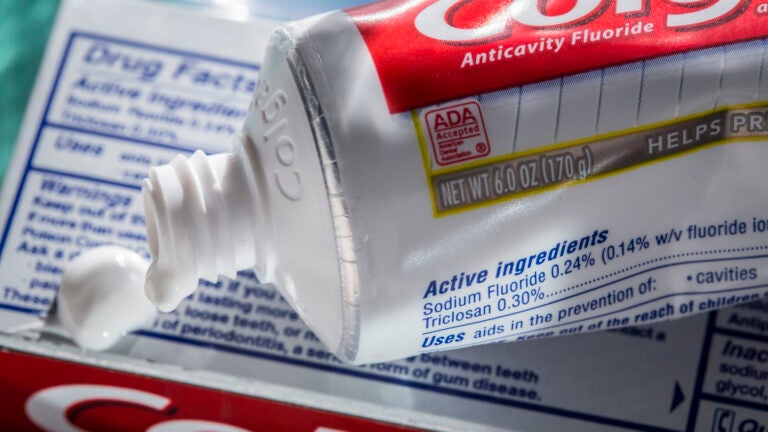How To
John Paul, AAA Northeast’s Car Doctor, answers a question from a reader curious about a remarkable claim.
Q. I recently got a pop up on my phone that some Colgate toothpaste in your gas tank would help improve fuel mileage. Any truth to this?
A. I have seen ads that show Coca-Cola, WD-40, and, yes, toothpaste all being added to fuel tanks to improve fuel mileage. These are all click-bait ads for some sort of supposed fuel enhancement device. Keep the toothpaste in the medicine cabinet, WD-40 in the garage, and Coke in the refrigerator. The best method to improve fuel mileage is to maintain your car, drive the speed limit, and accelerate and brake gently.
Q. Can you tell me at what mileage a timing belt in a 2014 Honda Pilot should be changed if at all? My mechanic says it is not necessary unless you are towing a trailer or off-roading. The manual that came with the vehicle makes no reference to changing the timing belt.
A. Your Honda, like many vehicles, have replaced scheduled maintenance with indicator-based service reminders. Just like when the car reminds you it is time for an oil change, the same system can remind you it is time to replace the timing belt. The reminder would come up as submenu 4. This would indicate it is time to adjust the valves, replace the timing belt, and spark plugs. AllData, one of the technical databases that I use, translates this into about 105,000 miles.
Q. I own a 1966 Buick Wildcat with the 425 Nailhead engine. I would like to know what the recommended gasoline octane is, and whether I should use a lead additive when I add fuel. Also, what would be the recommended oil weight that I should use?
A. This really depends on how you drive your car. When this car was built, there was lead in gasoline and limited additives. Also, oil was a single viscosity (20 or 30 weight) and had higher levels of zinc which lubricated cams and valve lifters. If you drive your car on weekends and only a few thousand miles per year, premium fuel and 10W-40 oil is probably fine. If you wanted to go the extra mile, depending on where you live you might find 91 octane recreation or marine fuel is available. This fuel will have the higher octane needed for that engine and no ethanol. Again, depending on how the car is being driven and if the cylinder heads have not been reworked with hardened valve guides and seats and are still stock, I would use a lead additive (Redline and others make it). Follow the directions and do not use more than necessary. With oil changes, I would use oil with ZDDP –higher level of Zinc which can be beneficial with “flat-tappet” engines (20 or 30 weight). Old car people feel free to weigh in on how you care for your vintage vehicles.
Q. Now that summer is here, I am using my boat more. The engine is a 50 horsepower Mercury, and just like with my truck I want to change the oil myself. The engine uses a synthetic blend, when I went to the store I was shocked at the price of the QuickSilver marine oil. Can I use a good synthetic oil, the same as I use in my truck?
A. The base stock that the automotive and marine oils use are all the same. It is the additive packages that make a difference. Unlike your truck, your boat engine is likely running at high RPMs most of the time. These additional additives reduce wear caused by the higher RPM and moisture. You do not need to use the Mercury/QuickSilver oil, any oil of the correct weight with the National Marine Manufacturers Association (NMMA) approvals will keep your engine safe.
Q. For compact import cars in the Honda, Hyundai, or Nissan category, do you need to change rotors when you replace brake pads? Some mechanics claim the rotors are made too thin nowadays and cannot be cut anymore. Is it true that you cannot resurface rotors if you want the brakes to work properly or is it the shop just trying to run up the bill?
A. As you start to remove metal from a disc brake rotor it cannot dissipate the heat as well as it can when it was at its full thickness. Many technicians will recommend a replacement brake rotor rather that resurface the existing rotors and experience an unhappy customer returning because of brake vibration. In my own car, when it comes time to replace the brakes, I will replace the rotors. I get better overall braking and it is worth the extra money. Also, when it comes to brakes, use quality parts. Brakes are one area that you do not want to cheap-out on.
John Paul is AAA Northeast’s Car Doctor. He has over 40 years of experience in the automotive business and is an ASE-certified master technician. E-mail your Car Doctor question to [email protected]. Listen to the Car Doctor podcast at johnfpaul.podbean.com.
Newsletter Signup
Stay up to date on all the latest news from Boston.com
